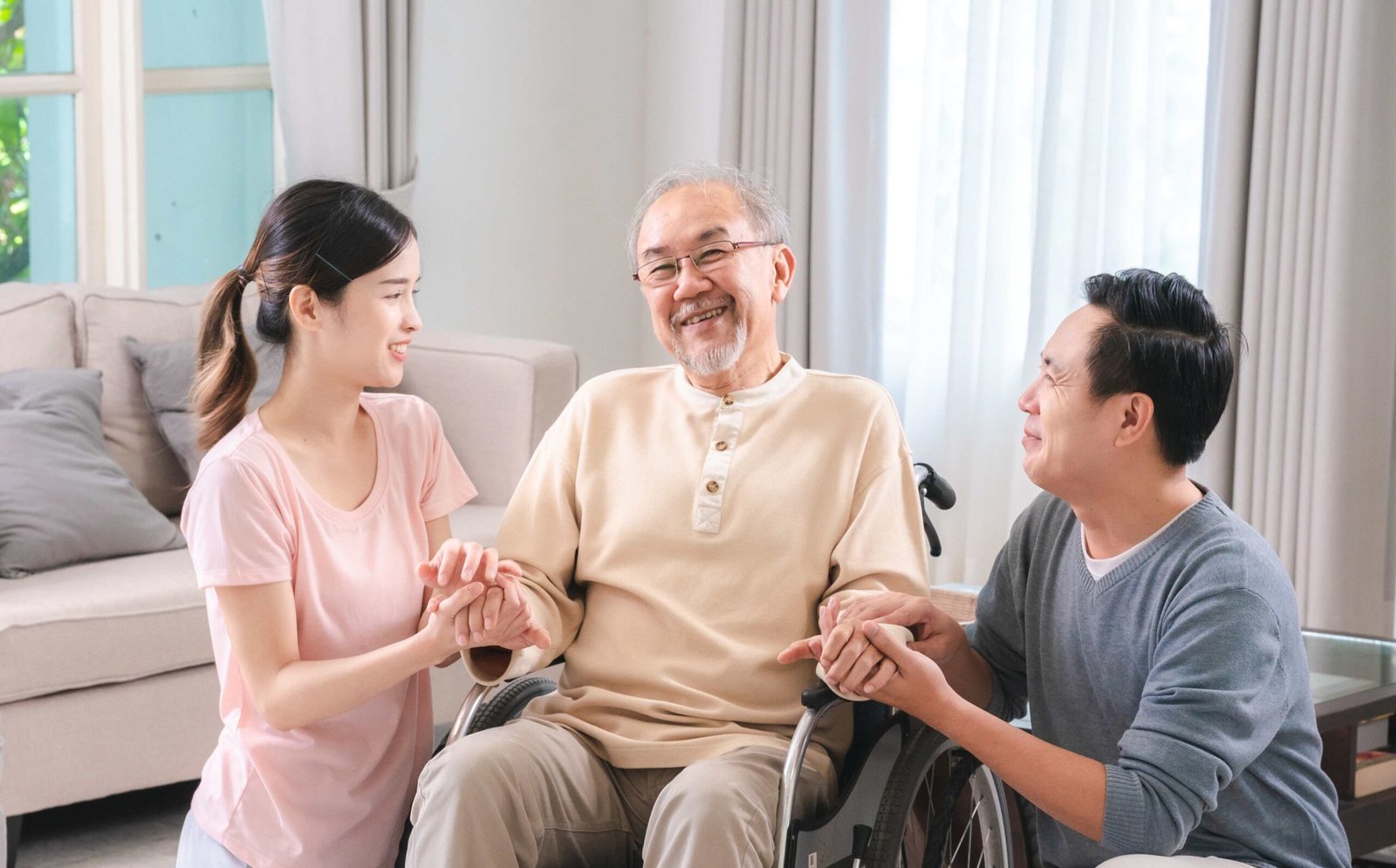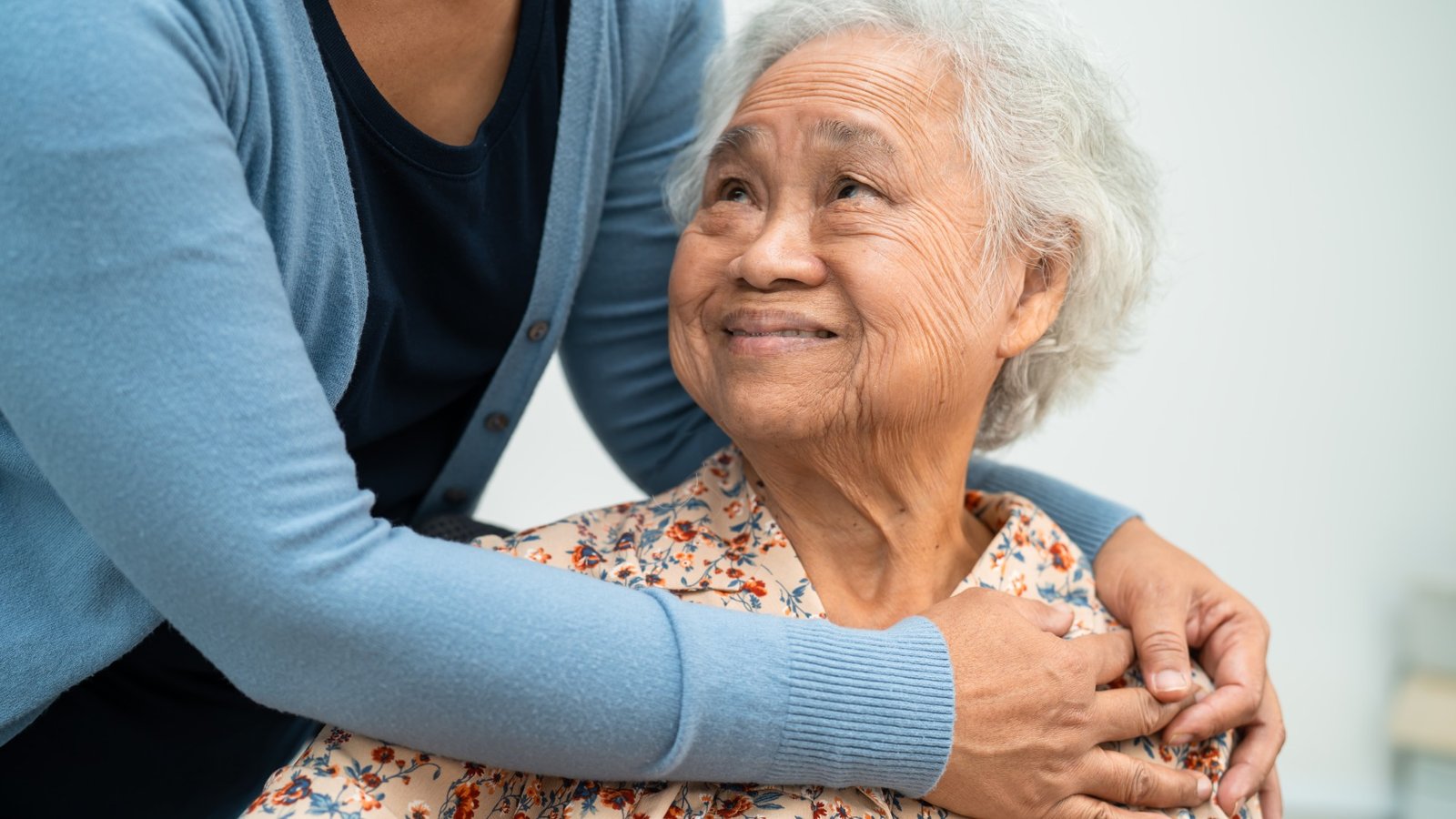Why Pick Serenity Hospice Care
When it’s time to consider end-of-life services, choosing the right hospice care is crucial. Serenity Hospice Care is here to offer top-notch in-home hospice care, palliative care, and end-of-life planning. Our mission is to provide the utmost care, compassion, and support during this tough time, ensuring a dignified and peaceful transition.
Services We Offer
At Serenity Hospice Care, we provide a wide range of services to meet the needs of our patients and their families. Our services include:
- In-home hospice care: Our dedicated healthcare team offers expert medical care, pain management, and emotional and spiritual support tailored to each patient’s needs and preferences. Learn more about our in-home hospice care services.
- Palliative care: We aim to improve the quality of life for patients facing serious illnesses. Our focus is on relieving symptoms, pain, and stress, no matter the diagnosis. Discover more about our palliative care services.
- End-of-life planning: Preparing for the end of life is important. Our team helps patients and their families document their end-of-life wishes, reducing unnecessary stress and anxiety. Read more about end-of-life care planning.
Compassionate and Supportive Care
Choosing Serenity Hospice Care means choosing a team that genuinely cares. Our compassionate care extends beyond the patient, offering support to family members as well. We understand the emotional toll that end-of-life situations can have on loved ones, and we strive to provide the necessary resources and support to help families navigate this challenging time.
Studies show that meaningful conversations about end-of-life choices can significantly ease the grieving process, with survivors reporting less guilt and depression (AARP). At Serenity Hospice Care, we facilitate these crucial conversations, providing a safe, respectful environment for patients and their families to discuss their wishes and concerns.
End-of-life planning is a gift to your loved ones, allowing them to make decisions based on your values and desires, free from undue stress and fear. By choosing Serenity Hospice Care, you’re entrusting your care to a team that respects and honors your wishes, ensuring that your final days are spent in comfort and dignity.
For more information about our services and how we can aid in your end-of-life planning, visit Serenity Hospice Care.
Why End-of-Life Planning Matters
Facing the end of life can be tough, but at Serenity Hospice Care, we believe planning ahead can make it a bit easier for everyone involved. It allows you to express your wishes for future care and helps your family make decisions that honor those wishes.
Why Plan Ahead?
Talking about end-of-life choices can actually make things easier for those left behind. Studies show that families who have these conversations feel less guilt and depression and find it easier to grieve.
Planning your final days is a gift to your loved ones. It helps them make decisions based on what you value most, without the stress and fear of guessing your wishes (AARP).
By planning ahead, you can focus on what matters most to you, whether it’s in-home hospice care, palliative care services, or end-of-life care. This way, you can ensure your comfort and quality of life are prioritized.
Making Smart Choices
End-of-life planning involves filling out documents like advance directives, living wills, healthcare proxies, last wills, power of attorney, and organ donor forms. These documents let you control your financial and healthcare decisions and make sure your wishes are followed.
Advance directives, including living wills and healthcare proxies, are key parts of this planning. Research shows that having these directives can reduce the use of life-sustaining treatments and increase comfort measures (Medical News Today).
By making these decisions now, you can ensure your wishes about healthcare, property, and estate are honored. Estate planning, for example, involves organizing your affairs to take care of loved ones if you pass away or become incapacitated. A will is a crucial part of this, along with lists of assets, obligations, and beneficiaries on retirement and investment accounts.
At Serenity Hospice Care, we’re here to help you through this process. We offer a range of hospice care options to meet different needs and preferences, providing compassionate, professional, and personalized care for each individual.
Talking About End-of-Life
Starting a conversation about end-of-life can be tough. But at Serenity Hospice Care, we know these talks are key to providing top-notch in-home hospice care and end of life care.
Breaking the Silence
While 85% of adults over 45 say they’re okay with talking about death, 70% admit they usually avoid it (AARP). This gap shows how uneasy we are about discussing mortality, which can make planning difficult.
At Serenity, we work to break this silence by creating a space where everyone can talk openly and respectfully. We know these conversations are sensitive, so we handle them with care and kindness. Our aim is to make sure everyone feels heard and supported.
Making Conversations Count
Research shows that meaningful end-of-life talks can help survivors feel less guilty and depressed, making grieving easier (AARP). We believe these discussions benefit not just the person in care but also their loved ones.
Our team uses tools like The Conversation Project’s guide to help start and keep these important talks going.
We also promote advance care planning (ACP) as part of our routine. This means talking about healthcare preferences and picking a decision-maker early on. Doing this can make these conversations feel more normal and focused on the person.
By encouraging open and meaningful end-of-life talks, we aim to provide the best hospice care that goes beyond your expectations. Want to know more about our services? Contact us today.
The Role of Estate Planning
When it comes to end-of-life planning, estate planning is a big deal. It’s all about making sure your loved ones are taken care of if something happens to you.
Securing Your Family’s Future
Estate planning isn’t just about writing a will. It’s about making sure all your stuff goes to the right people. This means listing out your assets, debts, and who gets what. A will is a must, but so is keeping track of your retirement and investment accounts (Investopedia).
Having a solid plan and giving your heirs the info they need is key to looking after your family’s future. This is where our Serenity Hospice Care team steps in to help you out.
Ensuring Smooth Transitions
Estate planning involves listing your physical and financial assets, documenting entitlements, and noting debts and memberships. Make sure to share these lists with your estate administrators and beneficiaries.
Retirement accounts and policies with named beneficiaries go straight to them when you pass, no matter what your will says. So, it’s super important to keep your beneficiary info up-to-date, especially after big life changes like a divorce or remarriage.
If you don’t have a will or clear asset documentation, your estate might end up in probate court. This can cause delays, extra costs, and family disputes. Proper estate planning helps avoid this mess and ensures everything goes smoothly for your survivors.
At Serenity Hospice Care in Simi Valley, we offer guidance and resources to help you tackle estate planning. Our goal is to give you and your loved ones peace of mind during tough times. For more info on our hospice care options, check out our hospice care near me page.
Documenting Your End-of-Life Wishes
Planning for the end of life isn’t exactly a fun topic, but it’s super important. Making sure your healthcare preferences are documented means your wishes will be respected, and it takes a load off your loved ones and doctors when tough decisions need to be made. This is where advance directives, living wills, and healthcare proxies come in.
Advance Directives
Advance directives are like your medical game plan if you can’t speak for yourself. They tell your healthcare team what you want, so they can give you the care that matches your values.
According to Medical News Today, having advance directives can make end-of-life decisions easier by cutting down on unnecessary treatments and focusing more on comfort.
Talking about end-of-life care can be awkward, but starting these conversations early and updating your directives regularly ensures your wishes are clear. At Serenity Hospice Care, we can help you through these discussions and the process of documenting your wishes.
Living Wills and Healthcare Proxies
Living wills and healthcare proxies are specific types of advance directives that are key to end-of-life planning.
A living will spells out what kind of medical treatment you want or don’t want if you can’t communicate. This includes your choices about things like resuscitation, ventilation, and feeding tubes.
A healthcare proxy is a legal document where you pick someone you trust to make medical decisions for you if you can’t. This person, also called a healthcare agent or surrogate, should know your values and be ready to stand up for your wishes.
We suggest setting up a power of attorney for healthcare and an advance directive to make sure your end-of-life medical care wishes are followed.
Remember, end-of-life planning isn’t a one-and-done deal. It’s something you should revisit and tweak as your life and health change. At Serenity Hospice Care, we’re here to support you with the resources and guidance you need. Whether you’re looking into in-home hospice care, palliative care, or just want to understand your hospice care options, our team is ready to help.
Understanding Medical Assistance in Dying
Medical Assistance in Dying (MAID) is a significant part of end-of-life planning. It involves a medical or nurse practitioner giving medications that cause an individual’s death, at their request. This can be a tough topic, but it’s important to know the criteria for eligibility, required safeguards, and informed consent requirements to make informed decisions for yourself or loved ones.
Who Qualifies and How It’s Kept Safe
To qualify for MAID, you need to meet certain criteria. You must be in a state of decline that can’t be reversed, experiencing unbearable physical or mental suffering, and have a reasonably foreseeable natural death. These rules are set by Health Canada to protect individuals and ensure MAID is done responsibly and ethically (Health Canada).
There are extra safeguards if your death isn’t naturally foreseeable. These include more assessments by medical practitioners, and you must make additional written requests for MAID.
It’s important to know that eligibility for MAID for those suffering solely from a mental illness has been delayed until March 17, 2027. This delay allows for a thorough review to ensure the right safeguards are in place.
Getting Informed Consent
Informed consent is a key part of the MAID process. It means the individual gives permission after getting all the necessary information. They must be able to provide consent both when they request MAID and immediately before receiving the assistance.
Healthcare providers involved in MAID must follow Criminal Code provisions on Medical Assistance in Dying legislation, effective since March 17, 2021 (Health Canada). This ensures the individual’s rights are protected and the process is carried out safely and ethically.
At Serenity Hospice Care, we know these decisions can be tough and sensitive. We’re committed to providing compassionate and supportive care, helping individuals and their families navigate these challenging decisions. For more info on our end of life care services, in-home hospice care, and palliative care services, please visit our website.
Advance Care Planning Process
Advance care planning (ACP) is all about making sure your end-of-life wishes are known and respected. It’s about picking someone you trust to make decisions for you if you can’t and letting them know exactly what you want.
Picking Your Go-To Person
Choosing a substitute decision-maker (SDM) is a big deal. This person will step in and make decisions based on what you want if you’re not able to. They should know you well, understand your values, and be ready to make some tough calls if needed (CMPA).
Think carefully about who you pick. This person should be reliable and comfortable with your wishes. Have a chat with them early on, and keep them updated as things change.
Talking About What You Want
Letting people know your healthcare preferences is key. These conversations make sure your end-of-life wishes are clear. They guide your SDM and healthcare team if you can’t make decisions yourself.
Talk about your values, beliefs, and what kind of care you want, including life-sustaining treatments. Remember, ACP isn’t a substitute for consent, but it helps guide decisions. Consent for specific treatments still needs to come from you, your SDM, or an advance directive where allowed. Right now, ACP can’t include consent for medical assistance in dying (CMPA).
Starting these conversations early with your family and healthcare team can make sure your wishes are followed. We think making ACP a regular part of your healthcare can help normalize these talks and make them easier.
At Serenity Hospice Care, we’re here to help with these important discussions. Our team is experienced and compassionate, ready to support you and your family through this crucial part of end-of-life planning.
Putting You First: Person-Centered Care
When it comes to planning for the end of life, we focus on what matters most: you. Person-centered care means having early conversations about your choices and making advance care planning a normal part of life. This way, your values and preferences are always front and center.
Why Talk Early?
Talking about end-of-life choices early can make a big difference. Studies show that when families have these conversations, they feel less guilt and depression, making the grieving process easier. Planning your final days is a gift to your loved ones. It lets them make decisions based on what you care about most, without the stress and fear.
Starting these talks early is part of giving you the best end-of-life care. This includes in-home hospice care and palliative care services. These discussions help us provide care that matches your wishes, whether it’s about managing pain or dealing with the emotional side of things.
Making Advance Care Planning Normal
Making advance care planning a regular thing is key to person-centered care. By talking about it as part of routine care, we can make sure that substitute decision-makers (SDMs) know and follow your end-of-life wishes (CMPA).
Doctors need to know who your SDMs are if you can’t make decisions yourself. These SDMs should follow your wishes, act in your best interests, and ideally, have talked with you about what you want.
At Serenity Hospice Care, we’re here to help you and your loved ones with advance care planning. Our team is ready to support you every step of the way, making sure your care fits your values and preferences. Want to know more about what makes us a standout hospice care provider? Check out our Serenity Hospice Care page.







